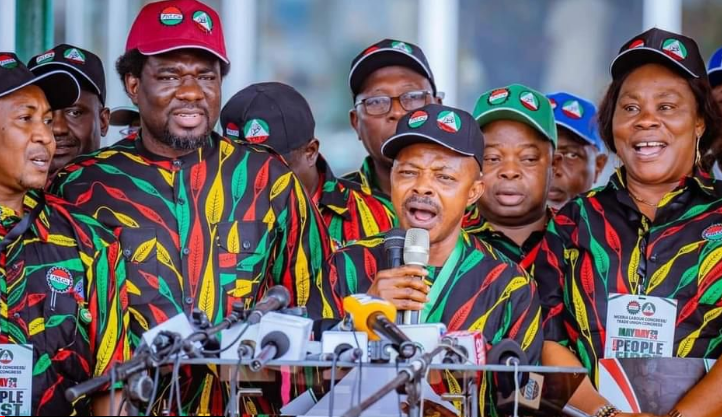
Negotiations over a new minimum wage have been postponed until Wednesday after organized labour rejected the Federal Government’s revised offer of N54,000. A reliable source at the meeting disclosed the adjournment to our correspondent.
Initially, the Federal Government proposed a minimum wage of N48,000, prompting labour representatives to walk out. In response, the government increased its offer to N54,000 during Tuesday’s meeting, but this was still deemed insufficient by labour, who remain firm in their demand for a N615,000 living wage.
A source at the meeting, wishing to remain anonymous, stated, “The government increased its offer from N48,000 to N54,000. However, labour rejected that offer, and the meeting has been adjourned till Wednesday.”
Expressing frustration with the negotiation process, the source added, “No seriousness at all. Even state governors did not show up. Those who represented them, like Bauchi and Niger states, did not have the mandates to speak on their behalf. We hope the private sector also increases their initial offer.”
National President of the Nigeria Labour Congress (NLC), Joe Ajaero, emphasized the urgency of their demand, citing the dire economic conditions facing Nigerian families. He blamed both the government and the Organised Private Sector (OPS) for the breakdown in negotiations.
In a joint statement with the Trade Union Congress (TUC), the unions stressed the need for a fair and equitable agreement that reflects the contributions of Nigerian workers and addresses the current economic crisis. The statement was signed by Joe Ajaero, NLC president, and Festus Osifo, TUC president.
The Tripartite Committee on Minimum Wage, inaugurated by Vice President Kashim Shettima on January 30, 2024, is tasked with recommending a new national minimum wage before the current N30,000 wage expires on April 18. The committee includes representatives from the federal and state governments, the private sector, and organized labour.
During the inauguration, Vice President Shettima urged the committee to “speedily” arrive at a resolution and submit their report early to ensure the timely implementation of a new minimum wage.
As part of its assignment, the committee held zonal public hearings on March 7 in various locations, including Lagos, Kano, Enugu, Akwa Ibom, Adamawa, and Abuja. During these hearings, NLC and TUC members proposed various figures for a living wage, highlighting the economic hardships and high costs of living faced by Nigerians.
In the South-West states, NLC members demanded a minimum wage of N794,000, while the TUC suggested N447,000. These proposals underscore the significant disparity between the labour unions’ demands and the government’s current offer, reflecting the ongoing struggle to reach a consensus that adequately addresses workers’ needs amid Nigeria’s economic challenges.




магазин аккаунтов магазин аккаунтов
Account marketplace Account market
account catalog website for selling accounts
account market secure account sales
buy pre-made account guaranteed accounts
profitable account sales sell accounts
buy and sell accounts buy accounts
buy accounts https://social-accounts-marketplace.live
account acquisition https://accounts-marketplace-best.pro
buy fb account https://buy-ads-account.click
buy facebook account https://buy-accounts.click
buy aged google ads accounts sell-ads-account.click
buy facebook business manager verified https://buy-business-manager-acc.org/
buy verified bm facebook https://verified-business-manager-for-sale.org
buy tiktok business account https://buy-tiktok-ads-accounts.org
First off I want to state great weblog! I needed a quick issue in which I want to inquire if you don’t brain. I had been curious to discover how you center your self as well as clear your mind just before creating. I’ve were built with a difficult time cleaning my personal ideas to get my personal ideas on the market. I really do want to write nonetheless it simply appears like the initial Ten to fifteen mins tend to be lost simply just trying to figure out how to begin. Virtually any recommendations or even tips? Thanks! : SURGA55
想知道为什么这么多人选择Telegram?访问纸飞机,了解其速度、安全性和强大的社群功能。